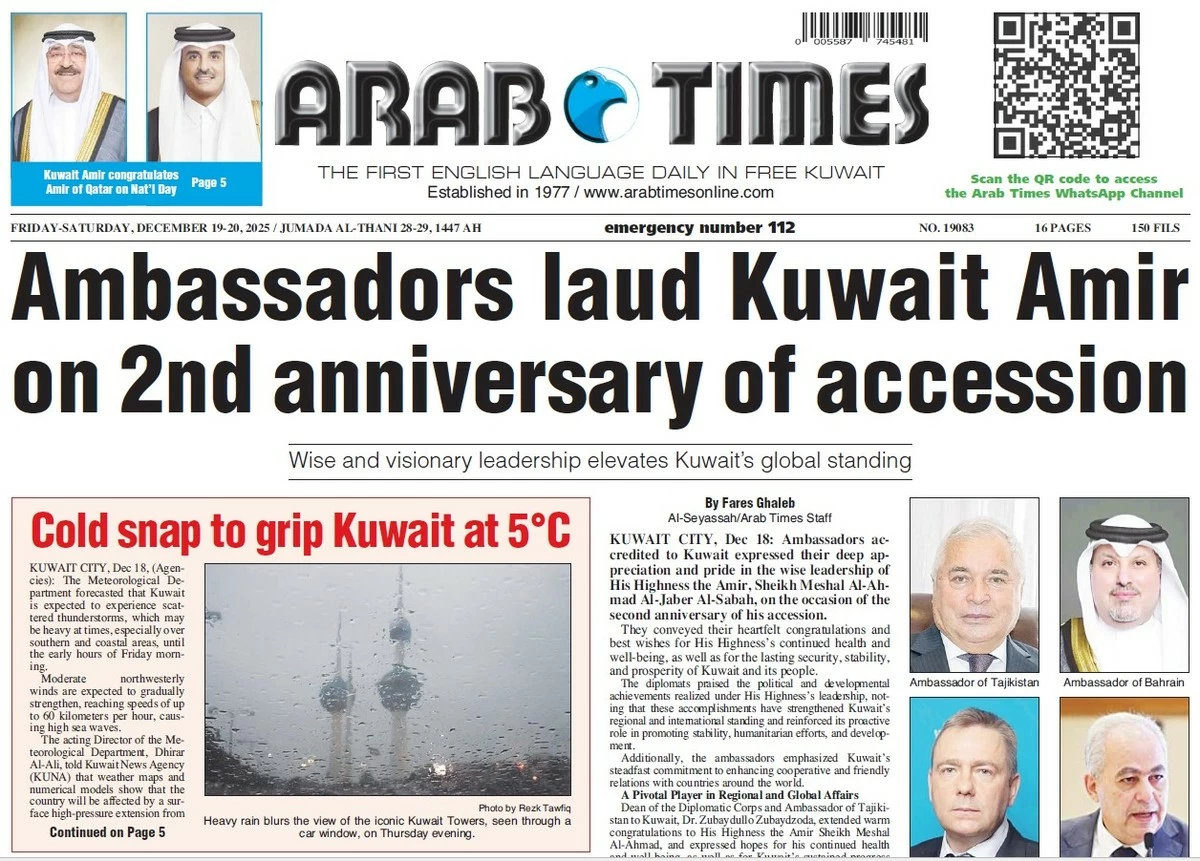02/04/2019
02/04/2019

MANY questions linger in the mind if you look at the current condition of Arabs – fragmentation, weakness, hatred, division and feuds. This happens despite the fateful threats lurking around us while major countries are rushing to exploit us in order to realize their objectives and downplay our issues.
As we attempt to compare us with Europe which united after the wars that saw the fall of millions of victims, in addition to differences in language and culture; we would see that it achieved what Arabs failed to do in spite of unity of language, history, religion, geography and culture and even if their struggle towards unity and solidarity is always mentioned in their statements and resolutions.
Europe plunged into inter-wars for centuries. Some of these wars continued for more than a hundred years. After the Second World War; Europe was convinced that peace cannot be achieved except through unity, looking beyond differences and benefiting from history by using it as a motivation to never return to the swamp of blood.
From the fall of the Abbasid Dynasty until the Sykes-Picot Declaration, Arabs have been unable to unite under one flag even though Islam unites them. Within this history, the Tartars committed horrible acts against them, followed by the Mamelukes and Ottomans; and after that came the British, French and Italian colonization which made us colonies and tribes warring over illusions.
This scene reminds us of what transpired in Andalusia (Spain) when it turned against the grandchildren of Abdul-Rahman Al-Dakhel. They were divided and every prince was hostile towards other princes while being surrounded by enemies from Spain and Portugal.
Instead of uniting under a single word as the Holy Quran advises them, they engaged in wars among themselves until the last prince – Abu Abdullah Al-Sagheer – stood on the ruins of Granada while wailing. His mother, Ayesha Al-Hurrah, told him at the time: “Indeed, do not cry as a woman for what you could not defend as a man.”
Today, the Arabs’ situation is not different from 527 years ago when feuds took root among leaders in their dominions which continued for 770 years in the Iberia Peninsula.
In modern days, we see the establishment of the current form of Arab countries which have not exceeded 100 years. Instead of benefiting from the rich history; we see them falling into the trap of internal division, while US President Donald Trump gifts Jerusalem – the pinnacle of every solution concerning the Palestinian case – to Israel by recognizing it as the latter’s capital.
Considering there was no Arab reaction to such a move, Trump went on to recognize the sovereignty of Israel on Golan Heights in terms of the Israeli-American aspect. The other aspect is that Iran is benefiting from Arab fragmentation to control the Arab world. Iran installs its militias in Lebanon, Iraq, Yemen and Syria while attempting to pounce on Bahrain, Saudi Arabia and then the remaining Gulf countries.
In addition, Turkey is ruled by the Justice and Development Party (JDP) which aspires to regain the glory of the Ottoman Empire by militarizing the Muslim Brotherhood Group. The group found someone among us who is eager to uphold Erdogan’s dream.
Some of them have reached the point of rejecting advice presented in the global arena, prompting him to withdraw in protest.
Undoubtedly, the current Arab condition will not reach what Europe reached; because historically, Arabs have yet to learn from past experiences.
Therefore, if French General Henri Gouraud reportedly went to the tomb of Salah Al-Din at the end of the First World War and sarcastically said: “Saladin, you came from the East and you will never return to it except by visiting. Here we are, we have returned as conquerors ... wake us up in Syria.”
Considering our present condition, it is not farfetched for another aggression to happen and repeat the same words. At that moment, we will not find anyone to wail over the ruins in our cities; because we would have opened the doors to invasion with our own hands.
Indeed, salute to the Tunis Summit and to the past and future Arab summits ... as long as we are well.
By Ahmed Al-Jarallah - Editor-in-Chief, the Arab Times


